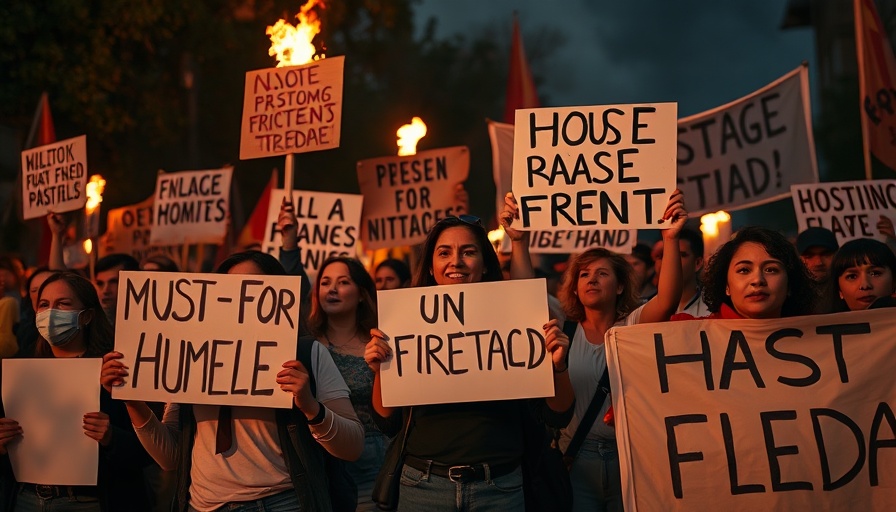
The Urgent Plea for Protection Amidst Sectarian Violence
As the echoes of gunfire ring out across western Syria, a haunting narrative of loss and desperation unfolds. Dalaal Mahna, a grieving mother from the Alawite sect, stands as a testament to the tragic human cost of ongoing sectarian violence. "They took him right from my side and told me: 'We're going to kill him and break your heart with it,'" she recounts, tears streaming down her face, referring to the brutal murder of her only son. This chilling personal account reflects a growing humanitarian crisis, as thousands are fleeing violence to seek shelter at a Russian military airbase in Hmeimim.
Why Are Thousands Compelled to Seek Refuge?
Since March 6, sectarian violence has surged, claiming over 1,400 civilian lives, predominantly among Alawites, as reported by various monitoring groups. In the face of this brutality, many families like Dalaal's have retreated to the relative safety of the Russian airbase, where medical and food shortages are rampant. "We need international protection from what we're going through," one woman said, crystallizing the urgent need for external assistance in this perilous environment marked by fear and insecurity.
A Gripping Human Rights Violation
The unfolding events are not only a national tragedy for Syria but represent a stark human rights emergency. The United Nations has condemned acts of revenge killings following an ambush that resulted in the deaths of 13 security personnel in the coastal town of Jableh, triggering a retaliatory wave of violence against Alawite communities. Summary executions have been corroborated, underscoring the severity of human rights violations occurring on the ground.
What Lies Ahead for the Alawite Minorities?
As many Alawite families languish in squalid conditions at the Hmeimim airbase, questions loom about their future. Will security improve? Can these families ever return home safely? New Syrian President Ahmad al-Sharaa has assured accountability for the violence, yet skepticism abounds amidst ongoing sectarian tensions. The perilous conditions risk further displacements and trauma, revealing the fragile thread of hope that hangs over these communities.
The Role of International Awareness
In the face of unprecedented violence, the international community’s role is critical. Advocacy for humanitarian aid and intervention is paramount to ensure those seeking refuge receive the protection and support they desperately need. The plight of the Alawite families serves as a poignant reminder of the broader implications of neglecting such emergencies, as the scars of sectarian violence continue to deepen.
As we witness these harrowing developments, it remains imperative for us to remain informed and advocate for humanitarian responses to alleviate the overwhelming suffering of those affected. The stories emerging from Syria should not simply be headlines, but a call to action, prompting us to engage further in dialogue about peace and solidarity in a deeply divided nation.
 Add Row
Add Row  Add Element
Add Element 



Write A Comment